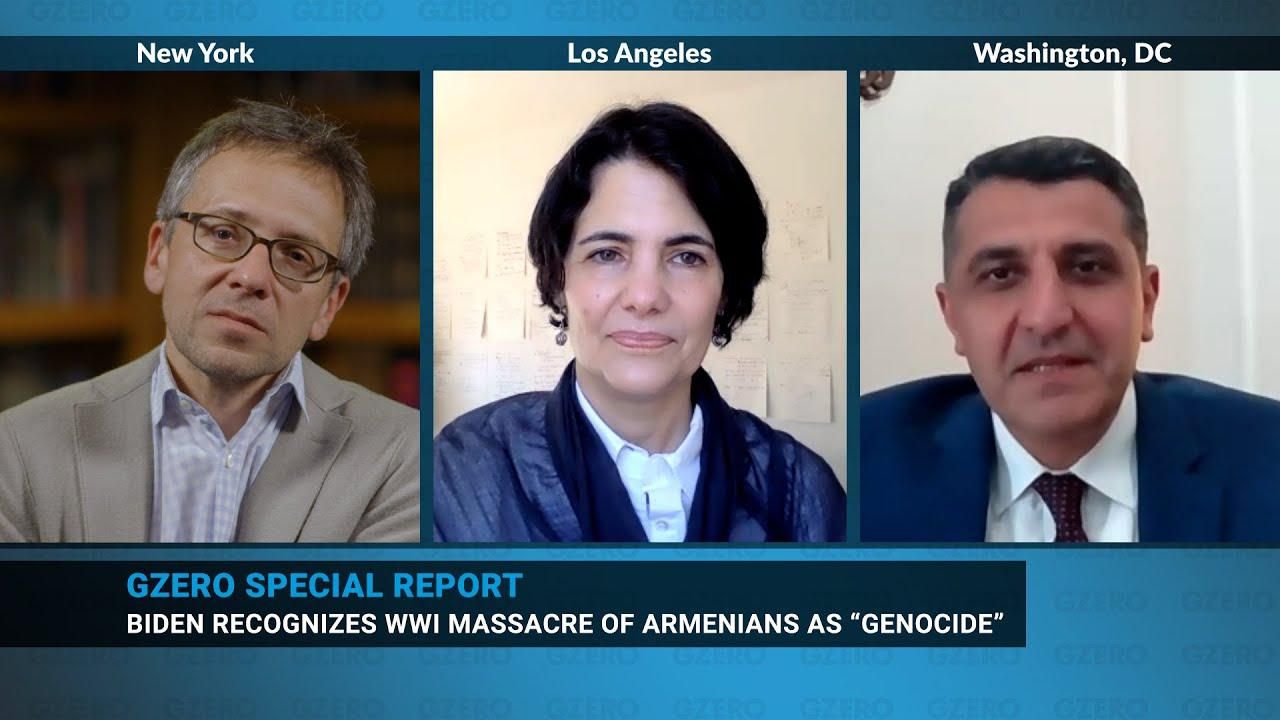GZERO World with Ian Bremmer
Biden’s recognition of Armenian genocide: ramifications for Turkey, Armenia & the US

Biden’s Recognition of Armenian Genocide: Ramifications for Turkey, Armenia & the US | GZERO World

In a special GZERO conversation, Ian Bremmer examines the impact of President Biden's recent statement recognizing Armenian genocide at the hands of Ottoman Empire, an atrocity that began 106 years ago during World War I. What are the ramifications for US/Turkey relations going forward and how will Biden's recognition affect Armenia? Ian Bremmer discusses with two prominent Armenian voices: Varuzhan Nersesyan, Armenia's ambassador to the United States and Nina Hachigian, Deputy Mayor for International Affairs in Los Angeles, the metropolitan area with the largest number of Armenians in the US.
After the US captures Nicolás Maduro, is Venezuela headed for stability, or chaos? Ian Bremmer talks to Senator Ruben Gallego and Frank Fukuyama about what comes next.
Think you know what's going on around the world? Here's your chance to prove it.